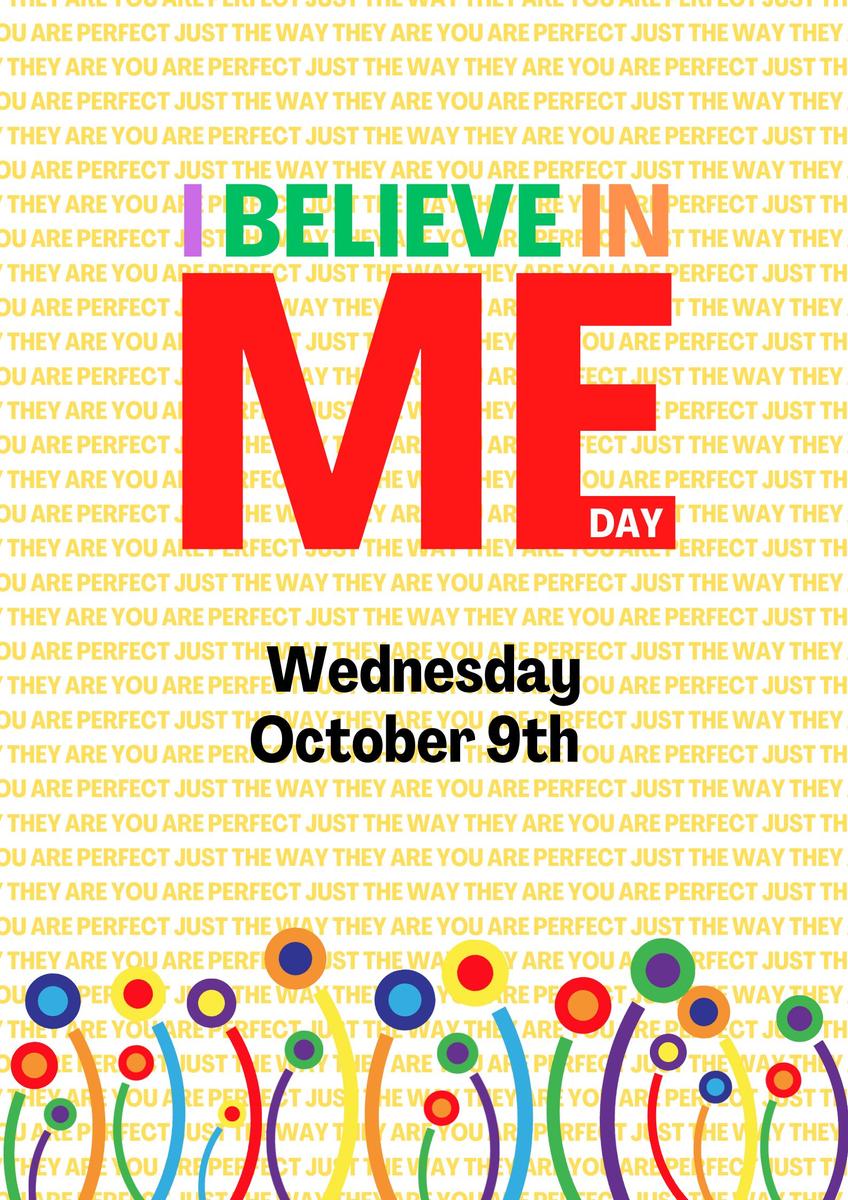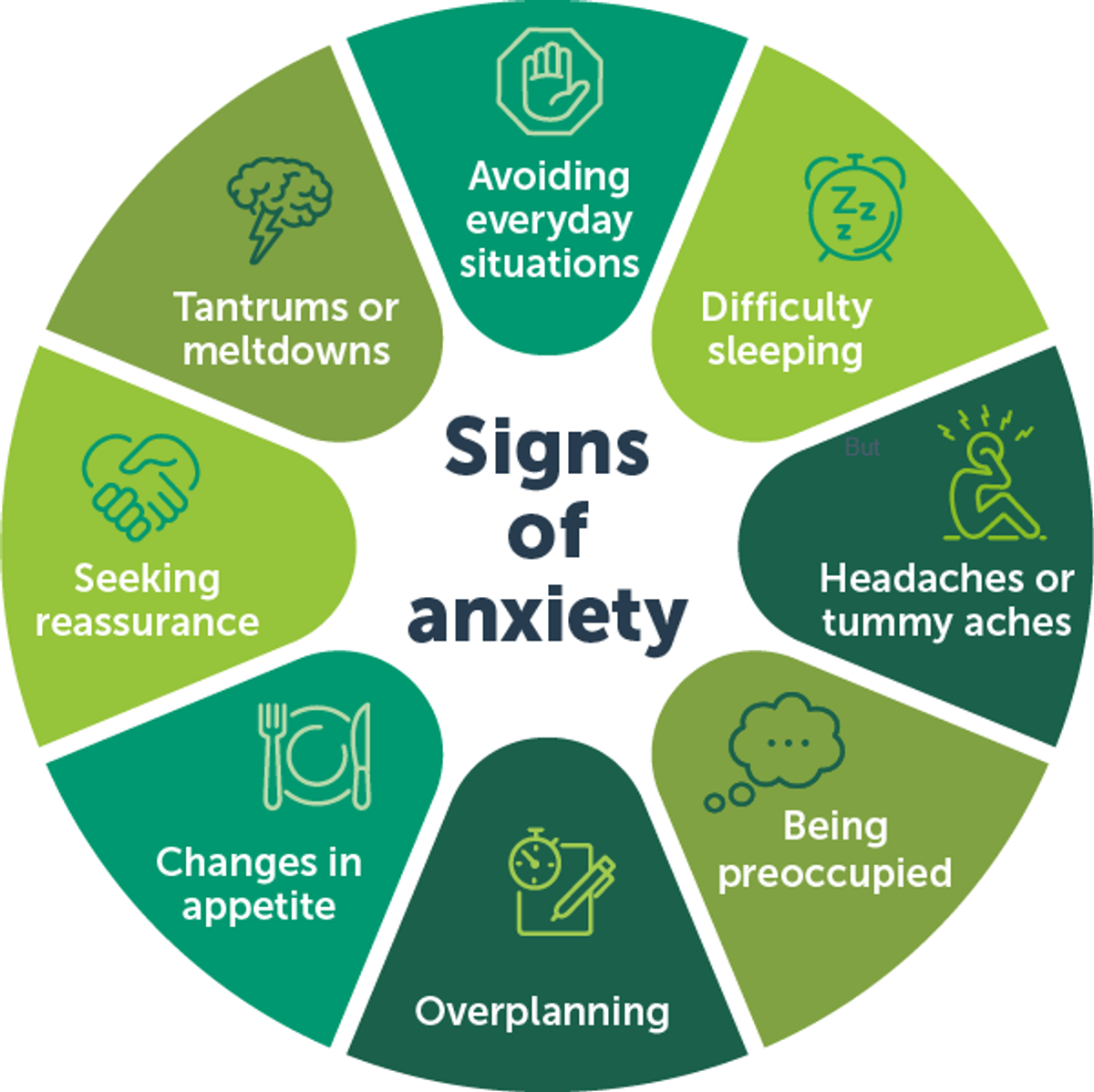Wellbeing @ NLPS

I Believe in Me Day – Celebrating our Uniqueness!
On Wednesday, October 9th, we will be celebrating a special event at our school.
I Believe in Me Day. This day is dedicated to recognising and celebrating the uniqueness of every student. It's a day to embrace who we are and be proud to be ourselves (love ourselves just as we are).
Students are encouraged to wear their favourite outfits that make them feel happy and proud. This is a free dress day, and we ask that each student bring a gold coin donation to support Variety – the Children’s Charity.
The day will be filled with exciting activities:
- 9:00 AM - Circle Time: We will start with a classroom circle time to share what makes us unique and celebrate our differences.
- 9:30 AM - Celebrating Who We Are Activity: Each class will engage in activities that celebrate our uniqueness and strengths.
- 11:30 AM - 1:30 PM - Buddy Activity: Students will pair with their buddy classes to create emotion cookies, a fun way to express and discuss our feelings.
‘I Believe in Me Day’ is about feeling happy, excited, and proud of who we are. It's a reminder that everyone is valuable and deserves to be included. Together, we'll make this day memorable and uplifting for all!
Empowering Parents with the Beacon App
In an increasingly connected world, managing our children’s digital lives can feel overwhelming. Have you seen or used the Beacon App? It is a free and helpful tool designed to support families in managing social media use and digital devices.
What is the Beacon App?
Beacon provides the most trusted and up-to-date cyber safety information that you and your family will need to navigate the ever-changing online world.
- Articles and videos backed by the latest research
- Tailored content and alerts, unique to your family needs
- Create your own family agreement
- Find help and services available to you and your family
Anxiety – primary school aged children
Feeling worried or anxious sometimes is normal. But some children have excessive or repeated fears, worries and anxious feelings that can last for weeks or more. These strong feelings can interfere with typical daily activities, such as going to school or seeing friends, which children may try to avoid. When children’s anxiety is severe or long-lasting it may be an anxiety disorder.
For parents, it can be hard to spot the signs of anxiety as it can show up in a variety of ways. It can be difficult to know what a ‘normal’ amount of worry is, and when to seek further help. Avoiding a situation that makes your child anxious may seem best, but it can quickly become a pattern that is hard to break.
Common signs and symptoms
- Regularly avoiding everyday experiences and situations, such as school, social events, playing, sport, eating or sleeping
- Frequent physical complaints, such as tummy aches and headaches
- Sudden emotional or angry outbursts, tantrums or ‘meltdowns’
- Difficulty sleeping
- Changes in appetite
- Seeking reassurance often
- Being preoccupied or unable to concentrate
- Overplanning situations and overthinking things
Many children will show these signs from time to time, and they may not be related to anxiety. When these signs appear frequently, in an ongoing pattern and cause your child to struggle with everyday life, they may be indicators of an anxiety condition or disorder. Common types of anxiety disorders in children include social anxiety, separation anxiety and generalised anxiety.
When and where to seek help
If your child regularly shows signs of anxiety, you can discuss this with their GP or another health professional, or their teacher. Some indicators that it is time to seek help include:
- if your child seems excessively worried or anxious, or feels anxious more often than not
- if anxiety stops your child from taking part in typical daily activities, such as attending school, socialising, playing or eating and sleeping well.
Diagnosis and treatment of an anxiety condition or disorder in a child can be provided by a trained and experienced health professional. If needed, a GP can arrange a referral to a paediatrician, child psychologist or other mental health professional to assess and support your child.
You could try an online treatment program for anxiety (see ‘Useful resources’ below).
How to help your child at home
If your child is showing ongoing signs of anxiety, you can support them at home in the following ways:
- Encourage your child to talk about their feelings and let you know when they get overwhelmed. It might help to explain these feelings are common – we all feel worried or scared sometimes.
- If there is a particular situation your child finds challenging, support them to gradually do the thing that makes them anxious. For example, if going to a crowded shopping centre makes them anxious, start with short trips to the local shops, building up to visiting a shopping centre in a quiet period.
- Make a practical plan together for coping with anxious feelings in the future, such as breathing techniques or reassuring phrases to focus on.
- Take time out to have fun together and take the focus off feelings of anxiety.
- Help your child to have healthy routines that include enough good-quality sleep, regular outdoor exercise, eating well and avoiding excessive screen time.
- Prioritise your child attending school. Attending and participating in school will help your child develop important skills and knowledge to help them learn, as well as building their social and emotional skills.
If you are a parent or carer with anxiety, it is important to also care for your own mental health and seek help when you need it.
Useful resources:
The Brave Program: An interactive online program aimed at 8–12 year olds to help them overcome worries and learn coping strategies.
Fear-Less Triple P Online Course: A toolkit to help your child manage anxiety and become more emotionally resilient.
Cool Kids Program: An interactive online program aimed at 7–12 year olds to help them overcome anxiety and build confidence.
The Beyond Blue Child Mental Health Checklist: A general tool to check your child’s symptoms and whether to get professional help.
Kids Help Line: A free, confidential 24/7 online and phone counselling service for young people.
Smiling Mind Kids Care Packages: A series of calming activities and audio recordings for children based on mindfulness meditation.
Mental health and wellbeing toolkit: Advice to support student mental health and wellbeing, aimed at students, parents and caregivers, and schools.
Parentline: A free phone counselling service where you can discuss parenting challenges and get support.
Key points to remember
- It’s normal for children to feel anxious, worried or fearful some of the time.
- Anxiety can be hard to recognise in children, as the signs are varied and include common things such as tummy aches, recurrent headaches, tantrums and difficulty sleeping.
- It’s time to seek help if your child has severe, frequent or ongoing symptoms, and if they are avoiding daily activities and situations that provoke their anxiety.
- For help, discuss your child’s feelings and behaviour with their teacher, GP or another health professional such as a nurse, paediatrician, counsellor or psychologist.
There are ways to support your child at home and online resources that may help.
For more information
Beyond Blue: Healthy families: Anxiety (6–12 years)
Raising Children’s Network: Anxiety and fears in children (0–8 years)
Raising Children’s Network: Generalised anxiety in children (3–8 years)
Raising Children’s Network: Anxiety: the stepladder approach (3–8 years)
Healthdirect: Anxiety in children



